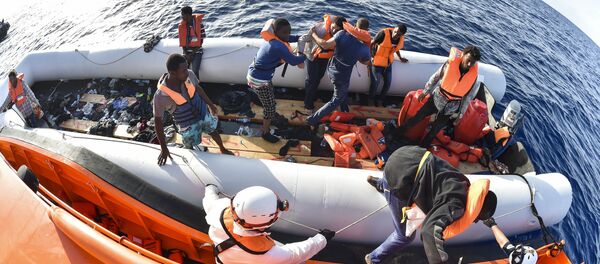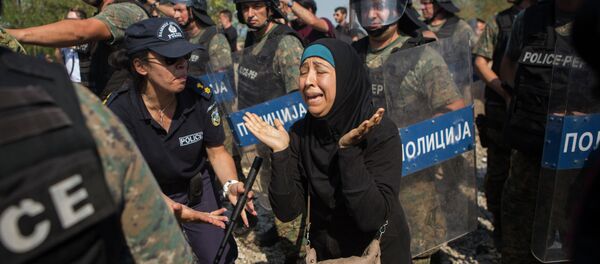"There should be a political signal from the EU that it is ready to engage with Libya," he said, warning of an "unprecedented" flow of migrants crossing from Libya once the warm weather returns.
However, his idea of a deal with Libya was swiftly derided by Europe's director of the UN refugee agency (UNHCR).
"The EU Turkey agreement cannot be a blueprint for Libya. First there is no government in Libya, so let's not even talk about," Vincent Cochetel, told MEPs in the European Parliament's civil liberties committee.
We are deeply worried at the situation of refugees and migrants faced with harsh winter conditions across #Europe pic.twitter.com/3HA8DPHP7R
— UNHCRNews (@RefugeesMedia) 13 January 2017
Turkey Deal
The EU-Turkey migrant deal was brokered in March 2016 between Brussels and Ankara in order to stem the flow of migrants crossing through Turkey into Europe. Under the deal, the EU was due to pay Turkey — initially — US$3.95 billion to bolster its refugee camps and accept "irregular" migrants denied asylum in Greece in return — on a one-for-one basis — for Syrian refugees in Turkey being relocated in the EU.
Heading to @EP_Justice to present UNHCR proposals to better protect #refugees in the EU & globally. Read them here https://t.co/uJ45aCMoXp
— vincent cochetel (@cochetel) January 12, 2017
As part of the deal, the EU was supposed to grant Turkish citizens visa-free access to the EU by the end of July and accelerate its accession to becoming a full member of the EU, provided it meets more than 70 criteria relating to human rights and other administrative protocols.
However, the deal has faltered over Turkish President Recep Tayyip Erdogan's crackdown on opposition parties and the media as well as criticism of his human rights record. Since the attempted coup, July 2016, his massive suppression of those associated with the coup — the judiciary, the military and the police — has been the cause of deep skepticism within the EU over Turkish membership, putting the migrant deal in peril.




